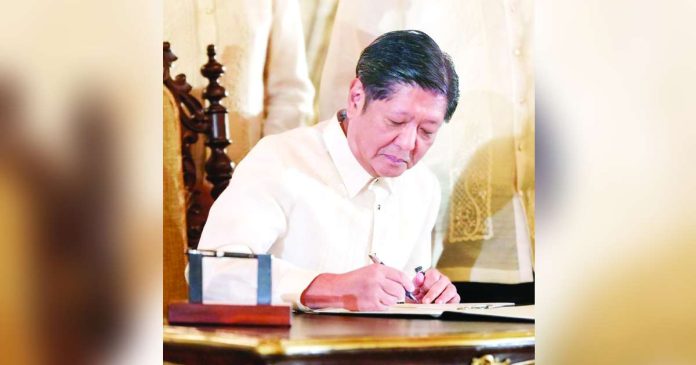
MANILA – The judiciary will now operate with guaranteed fiscal independence under Republic Act 12233, or the Judiciary Fiscal Autonomy Act, signed into law by President Ferdinand “Bongbong” Marcos Jr. on Thursday in Malacañang.
The new law ensures the judiciary’s budget will never be lower than the previous year’s allocation and mandates automatic fund release after congressional approval — removing potential political influence over court finances.
It also empowers the Supreme Court to submit its original budget proposal directly to Congress without alterations from the Department of Budget and Management.
“Democracy can only take root when every Filipino is certain that the law is the same for all and that those who create, enforce and interpret these laws do so without fear, without favor and without anyone holding them by the purse strings,” Marcos said.
“Today, through the signing of the Judiciary Fiscal Autonomy Act, we are putting safeguards in place so that the judiciary can work more efficiently and more independently,” he added.
The measure authorizes the Chief Justice, through en banc resolutions, to reallocate funds where they are most needed — whether for hiring personnel, repairing courtrooms, or upgrading systems. It also creates a Judiciary Trust Fund to replace the Judiciary Development Fund, pooling legal fees, existing resources, and deposit income, with management vested in the Chief Justice and subject to Commission on Audit review.
Marcos said the reform will accelerate hiring, decentralize operations, and bring court services closer to communities.
“This law further strengthens the commitment of the executive to work alongside the judiciary as a co-equal branch of government. We recognize that each of us has a unique role, and yet we also have a shared responsibility to uplift the Filipino people above all,” he said.
Congress ratified the measure, a consolidation of Senate Bill No. 2982 and House Bill No. 11358, on June 11, 2025, paving the way for its enactment./PN







